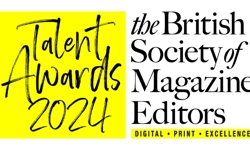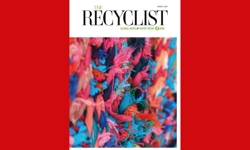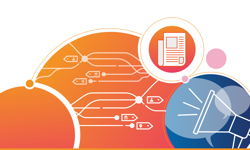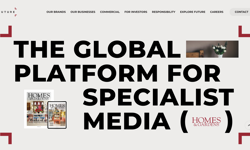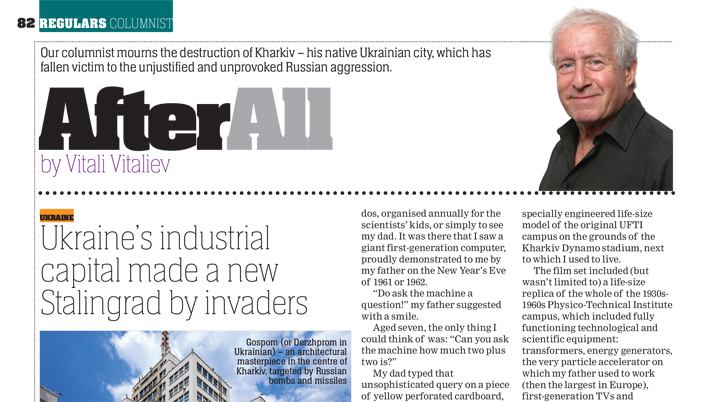
People sometimes think of the trade or professional media as a bit of a backwater. Some of it is – HIGNFY has barely scratched the surface of obscure magazines I have known. My own, Engineering & Technology, sounds intimidatingly specialist but I’m pleased to say it’s surprisingly accessible to many people and it covers many of the hottest political and consumer issues of the day, from driverless cars to sustainable power, or face recognition to artificial intelligence. On some days, half of R4’s Today programme is stuff we’d do too and usually already have.
Sometimes, though, the world is rocked by events that knock us for six, back into that backwater – at least until we’ve worked out what it means for our readership. But that can take time. First, we had the pandemic, which was so enormous it took a little time to see that the aviation industry’s loss was the remote working technology providers’ gain, achieving in a few short months more than the platforms’ marketing departments had managed in a decade. And there were ventilators, the vaccines, the emerging plastic waste problem, and much more that we’re still discovering.
Still, even with those big issues that worry the public and policy-makers, our subject matter can appear a little impersonal compared to the broadcast media, or a little unemotional and cold compared to some consumer magazines. In some ways, that comes with the territory but our readers are people as well as professionals and magazines like ours should connect with them on that human level too.
Now we have a war in Ukraine. On top of the squeeze on living costs, this too will change our readers’ work but again it won’t always be immediately obvious how. Part of the problem is the speed of development. As I write this, Russian forces are bombarding Ukrainian cities but it could all change by the time this article is published. There are the sanctions of course, rising fuel prices and other economic factors but these are already covered by the national media. How to add anything worthwhile isn’t so immediately obvious; how to move the story on for our specialist readership?
Our issue was nearly done when war broke out but we managed to squeeze in a few articles at the eleventh hour. Our Brussels correspondent wrote about what the crisis means for how the EU does its business and the effects it’s already having on the structure of the European power networks. Our City expert looked at the implications for the energy markets: could the crisis boost renewables and accelerate the move to a more sustainable power and energy mix?
Our readers are people as well as professionals and magazines like ours should connect with them on that human level too.
A Ukrainian perspective
These were all useful for our readers to try and make sense of what it means for them but it’s not really about the markets, finance or industry – worthwhile as it is to cover those. At times like this, it’s the personal, human stories that matter most. So, I was proud to have one of those in the issue too and it was powerful and moving. Vitali Vitaliev is our ex-features editor and still writes his personal ‘After All’ column for us, which is a usually light-hearted thought piece ranging widely over the years from the world’s worst cars to the worst electrical wiring, from new novels by computers to memories of the weird market for dead light bulbs in the USSR. He was raised in Kharkiv and his rewritten column wondered what was left of his home city and its people. I know it wasn’t easy for him to write but it made for a moving read that made me think about the power of human stories and what a crime it is to suppress those stories.
Ukraine is of course first and foremost a tragic disaster for its people and for the nation. But Russia’s version of events is now promoted unquestioned through state media with threats of dire punishment for anyone even referring to the ‘war’. Such an Orwellian situation is sad for the people of Russia too and will be felt for decades. By comparison, the freedom of speech that was there, was lost almost overnight. Media was closed down, journalists stopped. “There have already been targeted attacks on journalists, designed to stymie reporting and deter journalists from carrying out their work,” noted the NUJ here, “including the outrageous attack on a Sky news team.” A free press is hard won but easily lost.
I have just filled out a survey on UK journalist safety, commissioned by the Department of Culture Media and Sport. Accused of being politically partisan? – tick. Accused of misrepresenting facts or data? – tick. Insulted? Probably, can’t remember for sure. So the effect, asked the survey? Anxious – tick.
If that’s the worst I can report, I think I’ll cope. But a similar survey last year found four out of five UK journalists experienced some kind of intimidation, violence or abuse. It’s got worse with social media and we should beware the slippery slope. But let’s not forget those parts of the world where journalists doing this survey could tick all several dozen forms of intimidation and still have a few more to write under ‘other’. It's terrible for them, sad for society, disastrous for democracy and it affects us all. So, let’s all of us tell those personal stories whenever we can.
At times like this, it’s the personal, human stories that matter most.
This article was first published in InPublishing magazine. If you would like to be added to the free mailing list, please register here.





